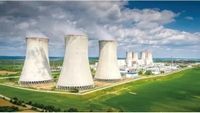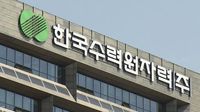After a tense legal battle and months of anticipation, Korea Hydro & Nuclear Power (KHNP) has officially signed the final contract to build two new nuclear reactors at the Dukovany site in the Czech Republic. This landmark deal, completed overnight on June 4, 2025, marks South Korea's first nuclear power plant export in 16 years, and its inaugural entry into the European market.
The journey to this milestone was anything but smooth. Initially, the contract signing was scheduled for May 7, 2025. However, just one day before the ceremony, a provisional injunction filed by French power giant EDF—who lost out in the bidding—halted the process. The Brno Regional Court had accepted EDF's injunction, effectively stalling the project and casting uncertainty over KHNP’s prospects.
But the tide turned dramatically on June 4, when the Czech Supreme Administrative Court overturned the earlier injunction, declaring it illegal and emphasizing that the public interest in proceeding with the contract outweighed the litigants' concerns. This court ruling was swiftly followed by an electronic signing of the contract between KHNP and Dukovany Nuclear Power Plant II (EDU II), a subsidiary of Czech utility CEZ, the project’s client.
Czech Prime Minister Petr Fiala personally announced the contract signing, describing the project as "a true and fundamental discovery to enhance the Czech Republic's energy self-sufficiency and security" and hailed it as "the largest project in modern Czech history." His statement underscored the strategic importance of the nuclear deal for the country's energy future, especially amid growing concerns over energy independence and security in Europe.
The project involves constructing two APR1000 reactors, each with a capacity of 1,000 megawatts, at the Dukovany site located approximately 220 kilometers south of Prague. The total project cost is estimated at 26 trillion Korean won (roughly 20 billion USD), representing one of the largest infrastructure investments in the Czech Republic in recent decades.
KHNP is not going it alone. The Korean consortium, often dubbed "Team Korea," includes affiliates such as KEPCO Engineering & Construction (KEPCO E&C) for design, KEPCO KPS for commissioning and maintenance, and KEPCO Nuclear Fuel for nuclear fuel supply. Private companies Doosan Enerbility and Daewoo Engineering & Construction also play critical roles in construction and equipment supply. This collaboration highlights the maturity and global competitiveness of South Korea's nuclear industry.
To ensure a smooth project launch, KHNP plans to open a local construction office at the Dukovany site. This office will oversee site surveys, select skilled personnel, and manage early-stage project tasks. The first official step will be a kick-off meeting between KHNP and EDU II, signaling the start of full-scale construction activities.
Looking ahead, there is potential for further expansion. If the Czech government decides to build two additional reactors at the Temelin site within the next five years, KHNP is poised to negotiate for the Temelin Units 3 and 4 contracts, further solidifying its presence in Europe’s nuclear sector.
This contract is particularly significant given South Korea’s nuclear history. The last overseas export was the Barakah nuclear power plant in the United Arab Emirates in 2009, marking a 16-year gap. Moreover, South Korea once relied on European designs, such as the French Framatome reactors used in the Hanul Nuclear Power Plant in 1982. Now, it has evolved into a nuclear technology exporter to Europe itself, a testament to its technological advancement and growing global trust.
KHNP CEO Hwang Ju-ho praised the contract as "another international proof of the technological prowess and reliability of the Republic of Korea's nuclear industry." He emphasized the company’s commitment to raising the global competitiveness of Korea’s nuclear ecosystem and delivering safe, sustainable energy for future generations. "We will do our utmost to ensure the successful execution of this project and fruitful cooperation with the Czech Republic," Hwang added.
Despite the contract’s completion, tensions linger. EDF, the French company that lost the bid, continues to challenge the deal, filing objections not only with Czech courts but also with the European Union. They allege violations of the Foreign Subsidies Regulation (FSR) by KHNP, signaling potential legal hurdles ahead. Nevertheless, the Czech government has shown strong support for the project, pre-approving the contract with CEZ to enable swift signing once the court cleared the way.
The Dukovany project represents more than just a business deal; it is a strategic move in the broader context of European energy security. As countries seek to reduce dependence on fossil fuels and diversify energy sources amidst geopolitical tensions, nuclear energy offers a stable, low-carbon solution. For the Czech Republic, this project is a decisive step toward energy autonomy and resilience.
Industry insiders note that the success of this project will depend heavily on the collaboration within Team Korea and the ability to navigate the complex regulatory, technical, and political landscape. The stakes are high, but so is the potential reward: a strong foothold in Europe’s nuclear market and a boost to South Korea’s reputation as a global nuclear technology leader.
In sum, the signing of the Dukovany nuclear power plant contract is a landmark achievement for South Korea’s nuclear industry and a significant development for the Czech Republic’s energy strategy. After years of legal challenges and fierce competition, the project is finally on track, promising to deliver cutting-edge nuclear technology to Europe and strengthen energy security for years to come.


